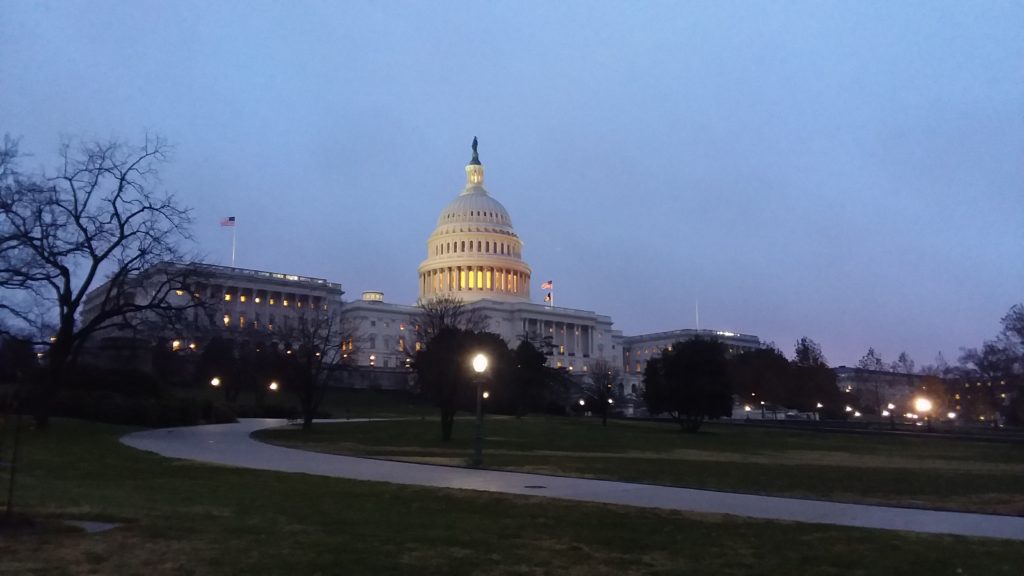If Sen. Chuck Grassley has his way, a new oversight bill for nursing homes will be introduced this month — one that reauthorizes the Elder Justice Act and sets up new funding for various programs in the 2010 law, passed as part of the Affordable Care Act.
Elder abuse is a long-standing issue for Grassley, the Republican chairman of the Senate Finance Committee who, with Democratic Sen. Ron Wyden, held a series of hearings related to elder abuse and issues in nursing homes this year.
In his prepared opening remarks to the July 23 hearing on elder justice, he stressed the importance of revisiting some of the programs in the act. And in a recent interview with Skilled Nursing News in his Washington office, the Iowa senator re-emphasized the need to include key provisions for oversight — specifically those he believes have been overlooked in the past
“The main thing is to have a long-term reauthorization of the Elder Justice Act, so people will know the programs that we have in there,” Grassley told SNN. “And hopefully more protections will be there.”
The goal is to introduce the bill this month, a Grassley aide told SNN, though the final text and provisions remain in flux. The original Elder Justice Act had authorized $100 million for adult protective services agencies, but there was never a dedicated funding stream for those services; states have had to use block grant programs to fund it.
The act also authorized six forensic centers to investigate elder abuse; they were also never funded, and the new bill would reauthorize the funding for them.
The reforms that might be added would be based on recommendations by the Government Accountability Office (GAO) and the Office of the Inspector General (OIG) at the Department of Health and Human Services (HHS) related to abuse. For instance, there are certain diagnostic codes and claims that might indicate elder abuse, with the OIG recommending that HHS use the codes to verify whether abuse is adequately reported, a Grassley aide said. Right now, the conversations with HHS around whether the legislation might include something of this nature are ongoing.
Another continued discussion with HHS focuses on the definition of abuse and neglect, which can vary depending on context and among care settings, the aide noted. Grassley’s office is asking HHS to look at the definitions and unify them across contracts, and is also looking at involving the attorney general to assist HHS secretary in developing training for SNF personnel and nursing home inspectors on the definitions — as well as clarifying who has to be a mandatory reporter.
“Those are just some of the provisions that are in the bill,” the aide said.
For Grassley, this issue is particularly crucial, given at least two instances of abuse and neglect at SNFs rated five stars on the Centers for Medicare & Medicaid Services’ (CMS) Nursing Home Compare website. In one case, used as a major example in a March hearing on abuse and neglect in nursing homes, a resident died at an Iowa facility with a five-star rating, Grassley noted.
While CMS has made improvements in nursing-home quality a major policy goal, with a five-point plan for improvement and a concerted push to tighten the five-star rating system, there may be more they can do — and a Grassley aide noted that the office is asking for CMS to look more comprehensively at the five-star ratings to see if they could be bolstered further.
“Three things: malnutrition, bed sores, and dehydration,” Grassley noted to SNN. “If you took care of those three things in nursing homes, most people in nursing homes would have a [good] quality of life.”
Other members of the Senate might have contributions. For example, Sen. Cory Gardner, a Colorado Republican, and Sen. Kirsten Gillibrand, Democrat of New York, introduced a bill to let nursing homes access the National Practitioner Data Bank, a federal employee background-check resource for health care providers; Gardner has asked Grassley’s office to include that in the bill, Grassley’s aide noted.
One area the bill might examine — though it’s only under discussion, according to a spokesperson for Grassley — relates to beneficial ownership of SNFs, which has become more and more of a prominent issue in recent years. Several states have recently passed laws related to the vetting of new SNF operators after the collapse of Skyline Healthcare, with an eye toward preventing a repeat situation where operators come into a new state and take over facilities with no back office or corporate support.
Both Grassley and Wyden’s staff are working closely together for a solution to that problem, according to a Grassley aide.
“We were hoping to add some transparency provisions around beneficial ownership to shed light on that issue, and perhaps call for the Inspector General to do a study of that particular issue — and the extent to which states are looking at the ability of potential purchasers of nursing homes to run them successfully,” the aide noted.
LeadingAge, which represents mainly non-profit senior living and care organizations, sent a letter to Grassley and Wyden dated December 6 expressing concern about the possibility of “more punishment,” arguing that more regulations, requirements, and fines will not necessarily lead to improvements of care.
The letter specifically called for a review of the current oversight system and whether a change in approach, such as a focus on reduced penalties for self-reported deficiencies and reserving punishment for nursing homes that consistently fail to meet minimum standards of care, might be a better solution.
“In our view, nursing homes already face sufficient regulation and punishment,” the letter said. “Layering on more will not achieve what we all want to see; namely every nursing home a suitable place for ourselves or our family members to live.”
Companies featured in this article:
Centers for Medicare & Medicaid Services, Department of Health and Human Services



